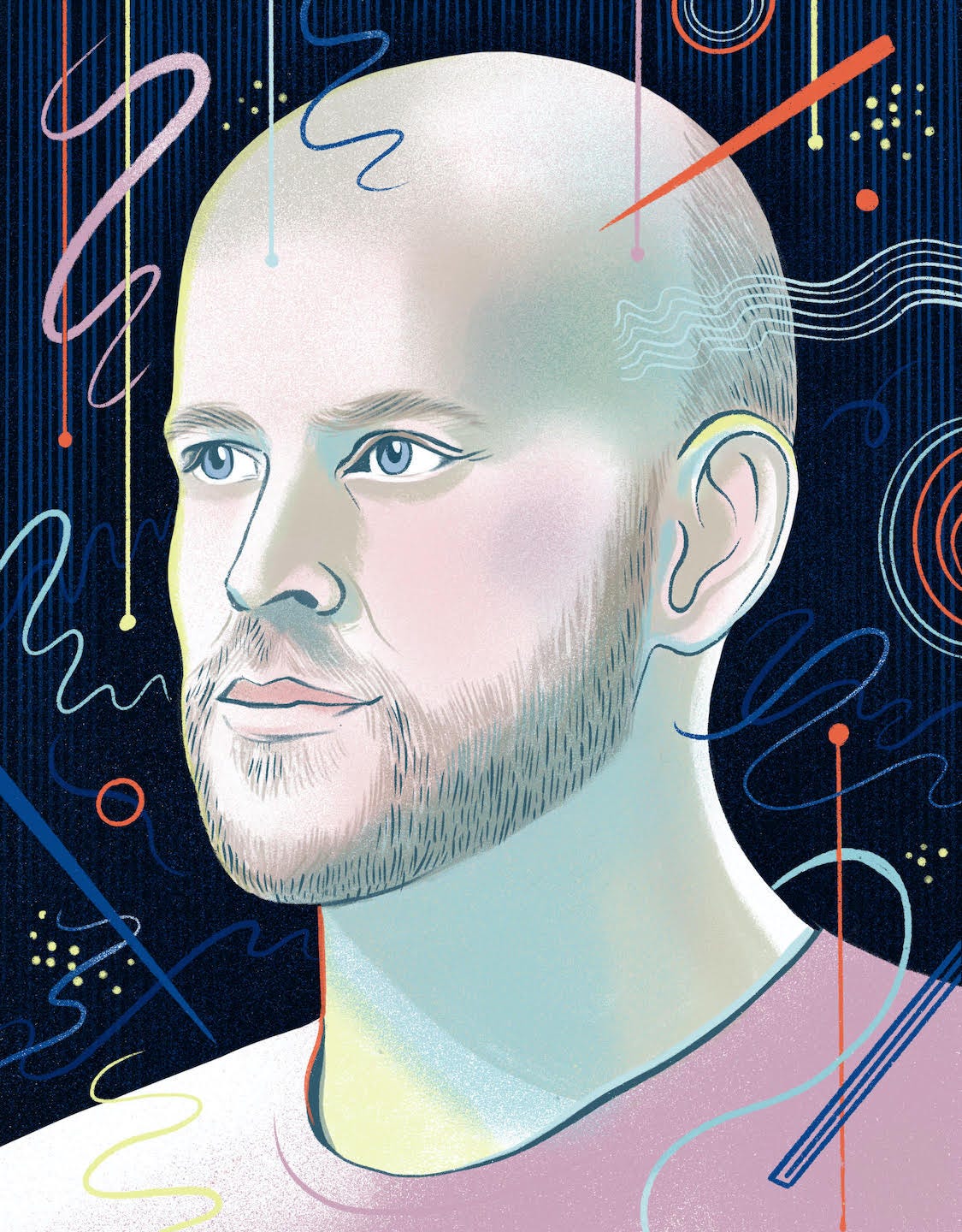What a week!
Tippets by Taps #149: Observations on Daniel Ek, the motherhood penalty during COVID, Burger King's Michelin Star and more. Enjoy!
Happy Sunday! As always, I hope this finds you safe, healthy, and able to find some downtime away from the relative insanity in the world this week. A very warm welcome to the new Tippets readers who are getting this for the first time! If you're reading this, not yet subscribed, and looking to receiving Tippets alongside the other similarly curious, intelligent people who've already subscribed, click below! 😄
It’s certainly been a week. I certainly didn’t think 2020 could get more ridiculous than it already is, but every time that thought crosses my mind the screenwriters for the most insane year in recent memory say, “You know what, let’s dial it up a bit more just to see what happens!” Most of the news I consumed this over what I am shocked is still only a 7 day period was outside the lines of what I typically share in these pages which resulted in a shorter issue than normal. However, in addition to the below, I wanted to share this tweet thread by Josh Wolfe of Lux Capital and this article by Shane Parrish of Farnam Street. Both have helped me loosen the grip the constant barrage of seemingly crazy news has had on me. I hope you have a terrific week ahead and find an ample amount of calm during what is sure to be a turbulent month ahead!

The Observer Effect - Daniel Ek
Daniel Ek is the 37 year old co-founder and CEO of Spotify, the content streaming service he started in 2006. Now a $45B company, I look forward to reading the Spotify book whenever it comes out because its journey was far from straightforward or easy.
This week Sriram Krishnan interviewed Ek. It’s a terrific read on a wide range of topics from time management and meetings and constant learning, to the creative process and board management, and even included a fun fact about Beyoncé. It left me wanting to know more about the Swedish CEOs leadership style and management philosophy. Excerpts below, but I encourage reading the whole thing!
I also think about what my role is at that meeting. Sometimes I'm the approver. Other times, I'm supposed to come with a thoughtful perspective on whether an initiative makes sense or not.
A great meeting has three key elements: the desired outcome of the meeting is clear ahead of time; the various options are clear, ideally ahead of time; and the roles of the participants are clear at the time.
Candidly, that’s my role as leader: to coach others on how best to make use of their limited time. Not only is time the most precious resource the company has, it’s also the most precious resource they have! It’s crucial that they approach the use of their time with a holistic perspective.
When I set out to tackle something – to solve some problem or create something new – in the beginning, it just seems insurmountable. When you enter a new field, you don't know anything; you don't even know what people are talking about! It sounds like it's a foreign language that people are speaking. But, I know from my experiences – going back to my five year-old self – that if I just persevere, if I keep going in this direction, eventually I'll start seeing what resembles a branch or a trunk, and then a leaf or two, and then I can start putting them together. Eventually, I'll see the whole tree. I just know that's the process. I try to repeat it often enough so it becomes a habit.
For example, when Beyoncé records an album, one of the things that she does, which is just remarkable, is she keeps almost four or five different studios running at the same time in a city. She uses different musicians, different producers and she actually goes from room to room: brainstorming ideas, trying different things, working on different songs. Whenever the moment leaves, she will go to the next studio and do the same thing.
Swedes, in general, are focused on balance. Work is not everything. So you try to find a sustainable path for all stakeholders. The moment that's now happening in American capitalism has already occurred in Sweden.

The Pandemic Is Amplifying the Motherhood Penalty at Work
A new study from McKinsey, Lean In and Stanford is out detailing the challenges faced by women in the workplace in an after-COVID 2020. The headline: Covid-19 has disrupted the workplace in ways we’ve never seen before, amplifying the challenges faced by working mothers. Excerpts below.
It found that not only are mothers doing way more at home than fathers during the pandemic, but mothers are also more than twice as likely as fathers to worry that their performance is being judged negatively because of their caregiving responsibilities.
When a working mother worries that she’ll be viewed negatively for blocking off time for child care on her work calendar or missing a call, the pinch she feels is the clash between two deeply held American cultural beliefs—what sociologists call “the ideal worker” and “the good mother.”
Although fathers too can experience flexibility stigma, research highlights how they are often buffered by the “fatherhood premium.” Seen first and foremost as breadwinners (not caregivers), when fathers request to work flexibly, they are often viewed positively for “helping out at home” while still delivering at work. Mothers, however, are seen first and foremost as caregivers (not breadwinners). Their “doing more at home” is often assumed to mean that at work they will be delivering less.
What’s more, social-science research shows that bias gets amplified under conditions of ambiguity—such as working remotely—when it’s harder to see what employees are contributing. When visibility is limited, people are more likely to rely on stereotypes to fill in the gaps. This dynamic sets the stage for maternal bias to occur because stereotypes, like the idea that mothers focus more on their children than their job, can draw a manager’s eye toward the few instances in which a mother fell short, and away from all the other times she delivered.
If there were ever a time to reexamine productivity or adjust performance objectives, it would be during a global pandemic. But the report shows that, for the most part, this doesn’t seem to be happening.
I encourage you to read the article and the study and take some time to think about how you can address these challenges in your organizations.

Burger King thinks it deserves a Michelin star
Something’s in the soda machines at Burger King. They keep coming up with brilliant ways to attract attention and needle the arches of their competition. They have offered Whoppers for $0.01 (but only if you place the order via the BK mobile app…from a McDonalds parking lot). They have sponsored a soccer team that turned into the most used team **EVER** in Fifa (I highly encourage you to watch the video below).


Now they are petitioning for a Michelin star.
The fast food giant's Belgian arm launched a petition demanding a sought-after star for its new Master Angus burger, encouraging followers to sign an online petition aimed at Michelin Guide inspectors.
"All right, we'll happily concede that 'star-rated' and Burger King aren't an obvious match at first sight," the fast food chain admitted.
Now, while certainly a lonnnnnnnnnnng shot, apparently, while there aren’t any rules that define who can or cannot be awarded a Michelin star. Inspectors judge based on five criteria: the quality of the products; mastery of flavor and cooking techniques; the personality of the chef in his cuisine; value for money; and consistency between visits. Inspectors can award one star which equates to "very good cooking in its category," two stars, which meant that it is "excellent cooking, worth a detour," or three stars, meaning it is "exceptional cuisine, worthy of a special journey." And the Burger King quest is on the radar of the Michelin Guide.
"Who said you needed silver service?" Michelin Guide wrote in response to a post by Burger King Luxembourg, which is also promoting the campaign, before suggesting that they would indeed try the burger.

Photo of the week:

This is what happens to your photo reel when your 2 year old starts pushing buttons on the phone without you realizing…🤦🏽♂️
Quote I'm thinking about: “A man should learn to detect and watch that gleam of light which flashes across his mind from within, more than the luster of the firmament of bards and sages.” - Ralph Waldo Emerson
If you have feedback on anything mentioned above or have interesting links/papers/books that you think would be worth sharing in future issues of Tippets, please reach out! Click the feedback link below, reply to this email, or DM me on Twitter at @taps.



